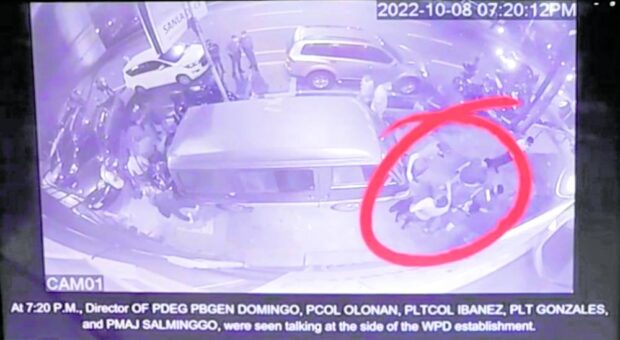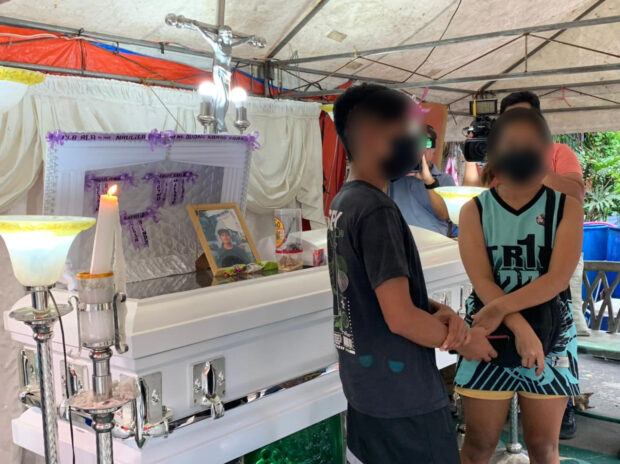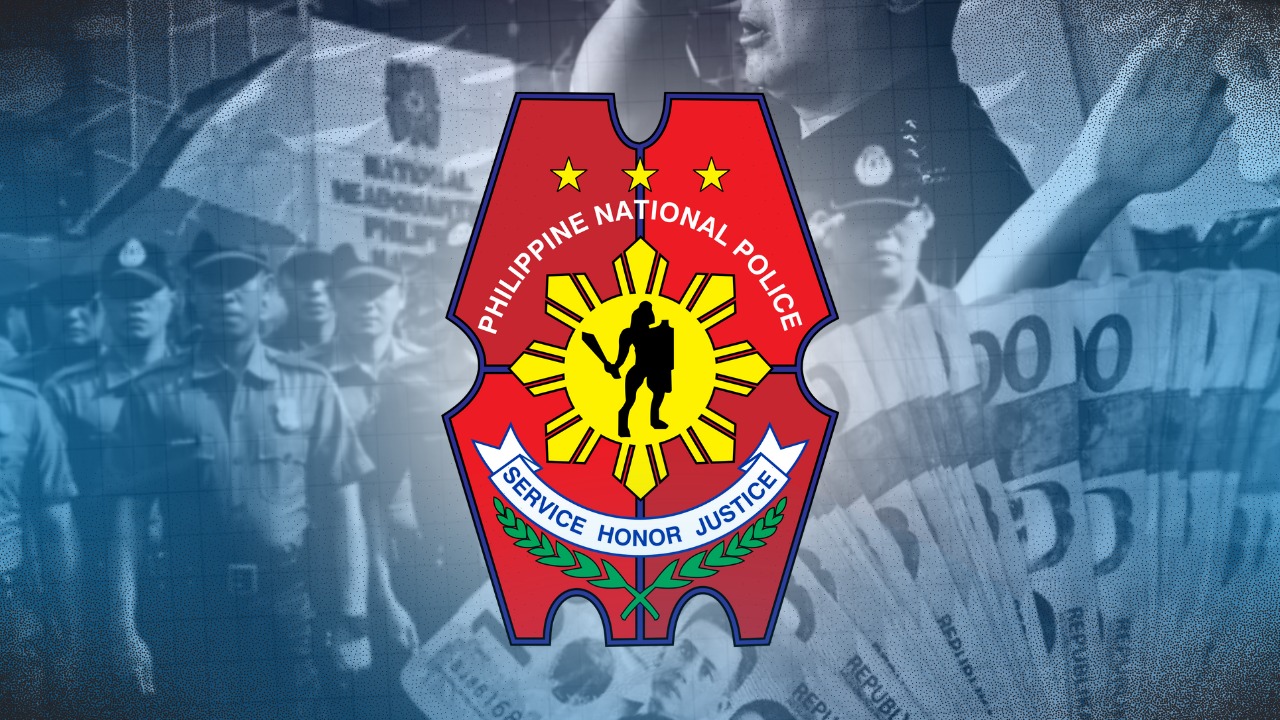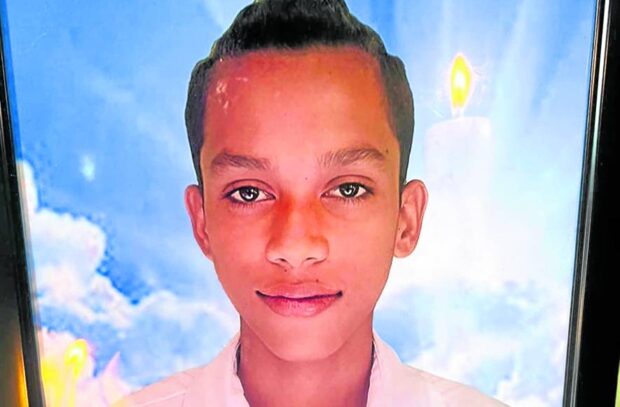PNP in 2023: Erring cops, more internal cleansing
MANILA, Philippines — In the face of ongoing controversies involving erring personnel in 2023, the Philippine National Police (PNP) promised to exert all effort and step up its internal cleansing campaign.
Despite the noise that the controversies generated, Col. Jean Fajardo, PNP spokesperson, said cases involving policemen actually declined in 2023 from 2022.
Last June, PNP reported that, since January 2023, it had relieved 938 police personnel and officers and suspended 1,703 others for various violations.
Fajardo said they have yet to consolidate the total number of suspended or relieved officers this year, but according to her PNP dismissed at least 634 personnel and officers from January 1 to December 13.
Of these, 27 were police commissioned officers, 589 were non-commissioned officers, and 18 were non-uniformed personnel. The number accounts for just .25 percent of the PNP population of 232,675 uniformed and non-uniformed personnel.
Fajardo, in a phone interview with INQUIRER.net, said most of the cases involved officers who went AWOL (absent without leave), while others were involved in drug use or tested positive for drug use.
7 Cavite cops
Among the dismissed were those involved in “questionable drug operations” like the seven policemen accused of ransacking a retired professor’s home in Cavite, she said.
The dismissed officers were Staff Sergeants Jesus Alday, Julius Barbon, and Emil Buna, Corporals Jenerald Cadiang and Lew Amando Antonio, and Patrolmen Reymel Czar Reyes and Rene Mendoza, who were assigned to the Station Drug Enforcement Unit (SDEU) of the Imus City police.
Reports said all were found guilty of six counts of grave misconduct, two counts of less grave misconduct, grave irregularity in the performance of duty, grave dishonesty and conduct unbecoming of a police officer.
Aside from this, INQUIRER.net takes a look back at other cases involving erring police officers and personnel this year:
P6.7 billion shabu ‘coverup’

PUZZLER Interior Secretary Benhur Abalos cited this security camera footage in questioning official reports about an October 2022 raid in Manila that led to the discovery of 990 kilos of crystal meth (“shabu”). The encircled figures are those of police officers whom he wanted investigated as he suspected a cover-up. —Photo from DILG
Although the case initially happened in 2022, Department of Interior and Local Government (DILG) chief Benjamin Abalos Jr. revealed a massive attempt to cover up the arrest of dismissed Police Master Sergeant Rodolfo Mayo due to drug-related charges on April 10.
Abalos’ revelation came after he authorized a fact-finding inquiry into the irregularities committed by some police officers and Mayo, who was apprehended during an anti-drug raid in Tondo, Manila, where at least 990 kilograms or P6.7 billion worth, of shabu was confiscated from him.
Abalos likewise showed proof of this information before the public. CCTV footage on the day of Mayo’s arrest revealed that instead of leaving immediately, he, and five ranking police officers were seen entering an establishment — transferring bags and luggage to various vehicles.
READ: DILG chief unveils ‘massive attempt to cover up’ dismissed cop Mayo’s arrest
Days after Abalos’ revelation, then-PNP Drug Enforcement Group (PDEG) director Brig. Gen. Narciso Domingo was relieved from his post and was replaced by Brig. Gen. Faro Antonio Olaguera.
In June, Abalos announced that criminal charges have already been filed against 50 police personnel, including ranking officers involved in the case.
The DILG and the National Police Commission (Napolcom) filed the complaints at the Office of the Ombudsman on June 9 for various offenses — violations of the Anti-Graft and Corrupt Practices Act; the Dangerous Drugs Act; the Revised Penal Code, specifically for falsification, perjury, and false testimony; and obstruction of justice under Presidential Decree No. 1829.
Of the 50, Napolcom oversaw the proceedings against 48 personnel and police officers who were likewise facing administrative charges.
Jemboy Baltazar

Jerhode Jemboy Baltazar’s wake in Barangay NBBS Kaunlaran, Navotas City. INQUIRER.net / Faith Argosino
The death of 17-year-old Jerhode “Jemboy” Baltazar was among the controversial cases of teenagers killed by police officers. Last August 2, he was shot by six Navotas policemen in a case of “mistaken identity” along a river near Babanse Street., Barangay NBBS Kaunlaran.
Criminal complaints of reckless imprudence resulting in homicide were filed against the six officers, along with administrative cases for grave irregularities in the performance of duty.
Among these police officers are Police Executive Master Sergeant Roberto Dioso Balais Jr.
(SWAT); Staff Sergeant Antonio Balcita Bugayong (Intelligence Service or IS); Staff Sergeant Gerry Sabate Maliban (IS); Staff Sergeant Nikko Pines Corollo Esquillon (SWAT); Corporal Edmark Jake Sorbito Blanco (Sub-Station 4 or SS4), and Patrolman Benedict Danao Mangada (SS4).
Their team leaders — Police Captains Mark Joseph Carpio and Luisito Dela Cruz, were likewise linked to the death of Baltazar and faced administrative charges.
READ: TIMELINE: Cops involved in Jemboy’s death, status of their cases
Almost two weeks later, on August 15, the National Capital Region Police Office (NCRPO) approved the PNP Internal Affairs Service’s (IAS) recommendation to relieve then Navotas police chief Col. Allan Umipig from his post.
NCRPO also lodged administrative charges against him and 11 other police officers after an investigation showed that he instructed the team leader to exclude the names of officers involved in the case from their reports.
The 11 police officers were Executive Master Sgt. Jose Elizalde Orlendo; Staff Sergeants Jonvir Tagacay, Rolan Orbita, Jorge Boco Jr., Melvin Napay, Kenneth Amangan, Jess Rondell Sauza, Mervin Villanueva and Ever Layco; and Corporals Aldrin Pascual and Mark Joseph Quillian.
By this time, a total of 23 police officers were relieved from their posts, including the eight police officers earlier mentioned, Umipig and 11 others, as well as Police Captain Juanito Arabejo, officer-in-charge of the Station Investigation and Detection Management Section (SIDMS) of the Navotas City Police and Chief Master Sgt. Aurelito Galvez, chief clerk of the SIDMS.
Another police officer, Captain Luis Rufo, was relieved from his post but did not face any administrative charges.
Last September, IAS recommended the dismissal from service of the first eight police officers, which was approved and signed by NCRPO chief Brig. Gen. Jose Melencio Nartatez Jr.
A month later, on October 3, the Navotas Regional Trial Court Branch 286 issued an arrest warrant for the six policemen (Balais, Bugayong, Maliban, Esquillon, Blanco, and Mangda) under the order signed by Presiding Judge Pedro T. Dabu.
The arrest warrant did not recommend bail for the six police officers who were accused of murder – violating Article 248 of the Revised Penal Code. The following day, all six “voluntarily surrendered” to the Criminal Investigation and Detection Group’s provincial field unit in Lucena City, Quezon province.
John Frances Ompad
Just weeks after Baltazar’s death, 15-year-old John Frances Ompad was killed by police on August 20. Police were initially chasing Ompad’s brother, John Ace, when they “accidentally” shot the 15-year-old just as he was stepping out of their home along Southville 8B, Barangay San Isidro, in Rodriguez town.
According to a report from the Rizal Provincial Police Office, John Ace was asked by two men — Cpl. Arnulfo Sabillo, 37, and his 27-year-old neighbor Jeffrey Baguio — to pull over and show his driver’s license. However, John Ace tried to escape them and sped away in his motorcycle, prompting Sabillo and Baguio to pursue him.
As John Ace arrived at their home, Sabillo allegedly fired his gun at him but killed Ompad instead. The policeman and his neighbor were detained and faced homicide and homicide complaints.
Aside from these cases, there were also members of the PNP who were arrested this year after they were linked to various cases involving extortion and abusing their partners, among many others.
Gun-toting dismissed cop

VIRAL ENCOUNTER | Wilfredo Gonzales, driver of a red sedan, went viral online after assaulting a cyclist. Gonzales is shown here pulling out and cocking a handgun as he confronts the unnamed cyclist near Welcome Rotunda at the boundary of Manila and Quezon City. (Photo from a YouTube video)
Notably, some resigned from their post, like then QCPD chief Brig. Gen. Nicolas Torre III, after a backlash over a press conference with a former officer Wilfredo “Willie” Gonzales, who was caught on a viral video pulling a gun in a confrontation with a cyclist in Quezon City last August 8.
Although Gonzales was no longer serving as a PNP member, it was revealed that he was demoted and eventually dismissed from police service in 2018 due to previous administrative and criminal cases.
According to documents obtained by INQUIRER.net, Gonzales was previously a Police Officer III (PO3) when he was administratively charged with grave misconduct, simple misconduct, and conduct unbecoming of a police officer in 2006.
He was supposed to be dismissed from the police service upon the order of the then PNP chief; however, Gonzales filed an appeal at the Napolcom and National Appellate Board (NAB). His request was denied, and the decision of the national police force’s chief was affirmed on September 17, 2010.
Unhappy with this ruling, Gonzales submitted an appeal for reconsideration with the NAB. On May 8, 2012, the motion was approved, changing Gonzales’ penalty to one rank demotion from PO3 to PO2.
On July 19, 2012, the NCRPO also issued a special order that modified his supposed dismissal to rank downgrade from PO2 to PO1. After being found guilty of grave misconduct, the PNP approved his removal from service, a penalty carried out by then-PNP chief Gen. Oscar Albayalde 12 years later.
PNP spokesperson Fajardo said aside from his dismissal, Gonzales’ retirement benefits were also forfeited, which means he needs to return any government pension or benefits he received through the years.
On August 29, the QCPD filed a case of alarm and scandal against Gonzales. Fajardo said the police could file more lawsuits against him.
Cop who fired gun in front of QC bar
Just last month, Lt. Col. Mark Julio Abong, a police officer, was arrested for firing his gun outside a bar in Quezon City. He was also involved in a hit-and-run case in August 2022.
Abong was arrested by authorities last Nov. 26 for purportedly assaulting a bar server and harassing a customer by firing his gun twice. Reports described him as an active member of the national police serving the Legal Service department, which surprised the QC People’s Law Enforcement Board (PLEB) — the check and balance mechanism created by law against erring policemen.
According to PLEB, it already released a decision in March removing Abong from the service for his alleged involvement in a coverup of a hit-and-run case that killed a tricycle driver, Joel Larosa and injured his passenger.
Larosa’s family lodged homicide and damage to property complaints against Abong, accusing him and three other police officers of trying to whitewash the case by reportedly using a certain Ronald Centino as a scapegoat.
Based on the documents, QC-PLEB executive officer and lawyer Rafael Calinisan said Abong was found guilty “for the grave offenses of misconduct, grave neglect of duty, and conduct of unbecoming a police officer with aggravating circumstances of employment of fraudulent means to conceal an offense.”
Calinisan emphasized in an earlier interview that although Abong filed an appeal, its decision was still “final and executory” as stated in the DILG Act of 1990, the Philippine National Police Reform and Reorganization Act of 1998, and Napolcom Circulars 2016-002 and 2019-005.
On Abong’s dismissal, Fajardo said that only three bodies have summary dismissal power — the chief PNP, the regional director, and the Napolcom director.
Fajardo also explained that denying Abong of PNP’s “due process” might also be used for his return to service.
For his gun-firing case, the PNP said that the director of its Legal Service department had already endorsed an administrative case against Abong to the Internal Affairs Service.
Abong is facing charges of illegal discharge of firearms, alarm and scandal, and violating the Comprehensive Firearms and Ammunition Regulation Act in relation to the Omnibus Election Code, which was filed at the city prosecutor’s office on the day he was arrested.
However, last November 30, Abong was granted temporary freedom after two local courts allowed him to post P177,000 bail, and an order was released by Regional Trial Court Branch 221 and Metropolitan Trial Court Branch 31 of Quezon City.
PNP Internal Disciplinary Mechanism
In penalizing its personnel, Fajardo explained that PNP has an internal disciplinary mechanism covering preventive, punitive, and restorative approaches.
Under the preventive approach, Fajardo said erring personnel undergo moral and spiritual recovery programs and weekly interactive meetings or engagement with groups with “values and life” coaches accessible for mentoring.
Those who committed grave offenses that would merit dismissal would undergo a punitive approach or “iron hand.” This method’s results would either be a suspension, withholding of privileges and benefits, or worse, dismissal.
Similar to the preventive approach, the restorative approach, or “soft hand,” implements a cleansing strategy through moral and spiritual recovery, as well as Focused Reformation/Reorientation and Moral Enhancement for Police Officers.
Fajardo explained that the PNP is strengthening its preventive approach to prevent the proliferation of cases involving erring police officers, who she said also have problems and stress factors inside and outside their professional careers.
Under “Bantay Kaisipan,” Fajardo said that the mental health and wellness of policemen were prioritized through sessions tackling anger management and stress debriefing.

